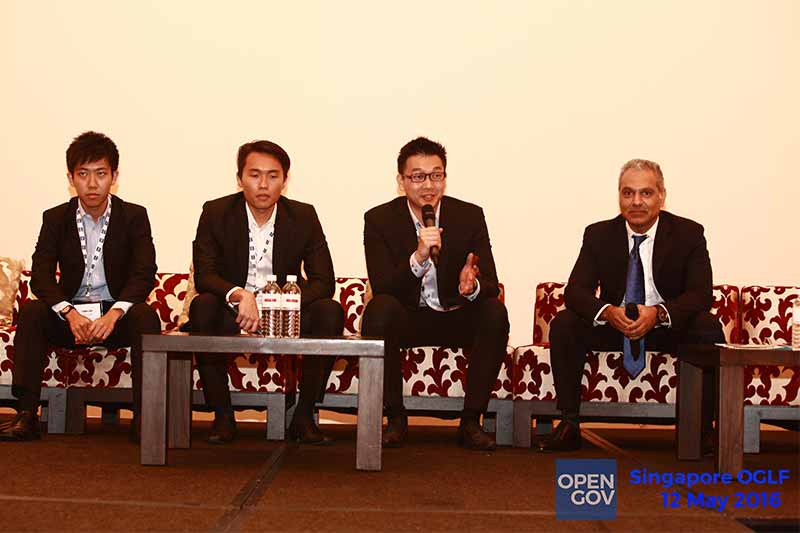
I was fortunate to have the opportunity to interview three of our next generation leaders in IoT at the Singapore OpenGov Leadership Forum recently.
Leon Lim, Lim Jun Yan and Melvin Leong have just graduated from the Singapore Management University with a Bachelor of Science in Information Systems BSc(IS). As part of their studies, they undertook a project which investigated how IoT technology can assist elderly patients maintain good health, allowing them to live in their own homes independently and reduce the need for hospitalisation. Basically, they have worked on and furthered the use of an IoT application to support and reduce societal impact.

The project was worked on under the direct supervision of Dr.Tan Hwee Pink who was a speaker at the event.
Over the course of their project, Leon, Jun Yan and Melvin supported a small group of elderly Singaporeans, and through the use of IoT monitors, assisted in monitoring their health. They gathered information on the subject’s movement, sleep and eating habits and gathered this data to ‘make sense’ of it and try and use it for the future.
I spent some time with these three students discussing government’s approaches to IoT.
What were some of the challenges in this project?
Convincing the elderly to allow us to put the sensors in their house proved tricky. The fear of ‘invasion of privacy’ played on their minds. Gathering data was the easy part. Through sensors, we could gather data on the subject’s health patterns. Over the timeline of the project (3 months) we gathered a significant amount of data. The main challenge for the project was converting usable data into knowledge. It was necessary for us to cleanse and sort the data (not difficult), but then trying to decipher what the data was telling us – that was more complicated.
We were working on an algorithm that could help us find patterns in the data. Unfortunately, our studies ended before we could confirm the algorithm’s accuracy. Hopefully, the next group of students will accomplish this.
Gathering people’s personal health data is risky. What are your views on data security?
Security and the protection of personal information is critically important to the project. Unfortunately, hackers are now adopting cloud techniques in an attempt to hack into government clouds. Governments should recognise that it is impossible to have a totally secure system that is foolproof to hackers. Instead, government needs to expect security breaches. The important issue is how fast government agencies can detect the security breach.
The other important issue in security is the human element. Staff in government agencies can assist every day with the security of the data their agency holds. Instead, staff tend to think that the ‘IoT Department’ has it all covered. Establishing a best practice security culture is critically important to government agencies in the security of their citizens private and personal information.
Given your thoughts on security, how did you ensure the data you collected was secure?
The project had embedded a strong culture of identity management for access to the data. We had group setups in place which assigned roles. These setups also had features that allowed us to monitor and review group access controls. We established one-time password identity management and had strict controls regarding password design and time-frames for password re-setting.
What are your views on how IoT can assist government agencies more effectively?
In our experience, one critical feature is that the business area and IoT should not function in isolation. In our project, if we did not build a good relationship with our subjects and understood what they were trying to achieve, we could not build a solution to assist them. The business areas of the agency and the IoT area needs to have a strong partnership.
What happens to the project now?
The project will continue with the next batch of Singapore Management University students and we hope they can progress the project to really add value to Singaporeans health needs.
Now that you have graduated, what is next for you?
We have taken the summer off to travel and rest. We all start new graduate positions in July and August. We will be joining the corporate world.
I have no doubt that these three young IoT stars will add value very quickly to their new companies. Here at OpenGov Asia, we wish them all the very best for their new careers, and we look forward to watching the progression of their project with a new student group.



















